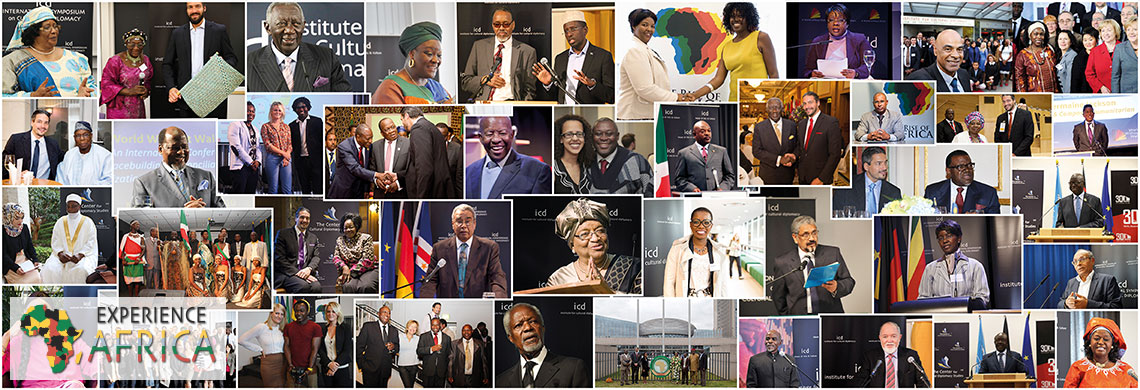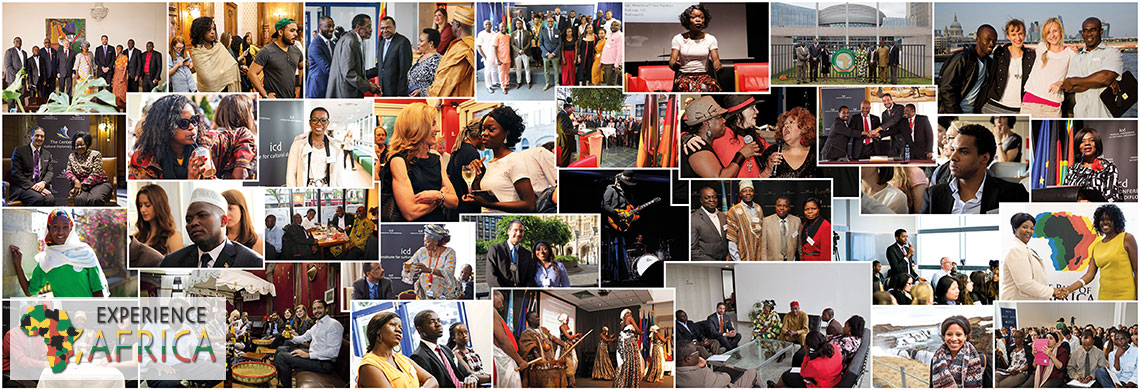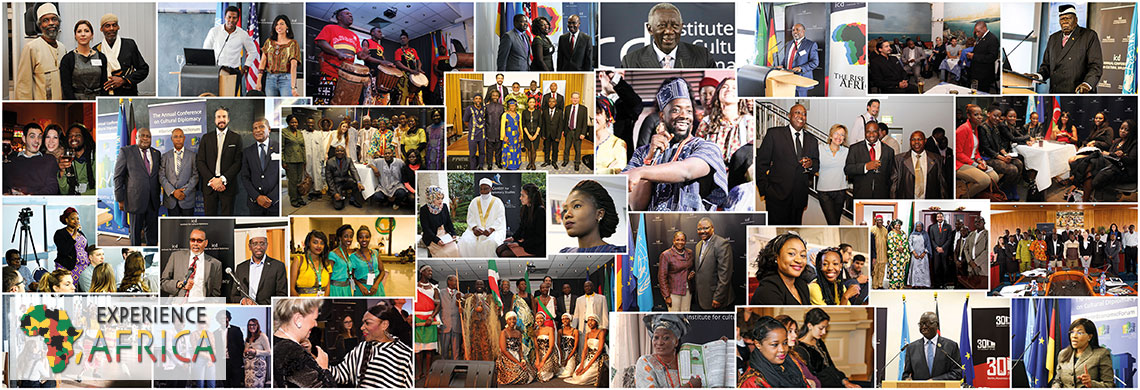An Interview with Abed Nadjib, Minister Counselor of the Embasssy of the Islamic Republik of Afghanistan in Berlin
Berlin
What does cultural diplomacy mean for you? Which measures do you see in today’s world can be improved in order to create cooperation between countries?
Firstly I need to thank you for your time. I want to thank the institute for the open work that it does, especially for the young generation, the cultural exhibitions and events, for diplomats the activity you do also aids us.
Cultural diplomacy has great significance. We want to inform people about all different cultures and lives, we want to inform people who live in different places. Thanks be to God that technology has come so far that we now can show people in just 30 minutes what takes place in Afghanistan… what takes place in America or in Germany. Particularly for the young generation, the access to such technology is advantageous. Thank God that since 2001, Afghanistan also has the technical ‘know-how’ to engage in such practices. Due to our press freedom, which we have had in Afghanistan since 2001, we have now possibilities; we have televisions, radios, internet; we have lots of things which America and Europe also have such as “The X Factor”, “Masterchef”, “Who wants to be a millionaire”. TV is able to represent and share all aspects of culture.
Naturally we represent Afghanistan at the Embassy, but our aim is to bring the countries in which we are guests closer to Afghanistan. It’s particularly important to celebrate national and internationally recognised days at the Embassy, for example New Year. It is a way to show Germany how we like to celebrate in Afghanistan and bring us all closer together.
What role do you think cultural diplomacy has in regional integration?
It is of great importance. When people spoke of Afghanistan before, many would often ask, “Where is it?” Now when I speak of Afghanistan they say, “I went once to Mazari Sharif, I went to Kabul… I went to Herat… to Kunduz. Also through the committed collaboration with the international community through the development of the country, Afghanistan has turned into a country known for its culture.
Do you think that Cultural Diplomacy can be used during the conflict resolution process? Can you list some examples from Afghanistan?
Yes, naturally. It plays a very important role. When one spoke about Afghanistan 20 years ago, it was traditionally about a nation for tourism; the Buddha Statue at Bayman was well known as was the great mosque in Herat, the Blue Mosque in Marzari Sharif, but through cultural diplomacy you can become closer to the Afghanistan that is less well known; you can learn how Afghans go about their daily lives, how they are together, and about their hospitality, which is similar to that of America. It makes possible the bringing together of people from various backgrounds and fields.
Through which practices and activities the Embassy of the Islamic Republic of Afghanistan promote its national brand abroad and cultural values?
There is a lot we can promote. There are lots of different, international exhibitions and shows that take place across the world – in Germany too. For example the huge Green Trade Show, which took place as a part of Green Week here in Berlin, which we also took part in, displaying Afghan produce.
There are also other cultural exhibitions where we can put forward our cultural output such as that run by the BMZ, the Ministry for Economic Collaboration and Development. It organises a yearly convention bringing together all of the embassies, and offers a place to share and display our culture. There is also the tourism fair, which allows us to display touristic possibilities and bring others closer together. Moreover, we also organise many events in the Embassy itself ranging from political to economic events with education the most important component. The key to survival is education. We can see how education has changed Afghanistan since 2001: 267,000 young men and woman have accessed university since 2001 in Afghanistan and in 31 of 43 states, new faculties across all disciplines have opened in the last 13 years.
Through which activities and practices Germany and Afghanistan are consolidating democracy and stability? Do you want to highlight a project you feel as particularly successful?
Afghanistan and Germany have had a good relationship with one another for hundreds of years, since 1923 we have had a diplomatic relationship and representation with Germany. This shows how the two states and two cultures are close together. In the past, before the war in Afghanistan, Germany had an established position in trade and exchange with Afghanistan: in textiles for example, but particularly in the exchange of scientists and researchers who went to Germany from Afghanistan, and some that have gone to Afghanistan from Germany. We have a German school in Kabul in which teaching is given in German and we hope that soon enough there will be a German-Afghan university at some point, like the American-Afghan school, already in existence. Afghans like study and many enjoy studying the German language, our wish is that they are able to go further with their German, after school. Many Afghans study sciences, both at home and abroad, here in Germany. IT, economics, medicine and science are all popular and we even have people in our own military that once studied in Germany.
How do you think it could be possible to fight discrimination: racial, social, economical or religious, which affect a serious number of individuals on all levels of social strata? What role can cultural diplomacy play here?
We are at a key junction in the linking of political diplomacy, culture and economics. I believe that through exhibitions and events, as we often take part in, we can move forward. There are around 100,000 Afghans in Germany who study, who work, who live here, and some of whom who have citizenship here. We are in a position here in Germany with many foreign cultures side be side. We can celebrate lots of cultural days together, for example we celebrate once our own New Year and secondly the Christian New Year. We celebrate several different religious days through inviting guests to the Embassy, we can bring people closer to Afghanistan through celebrating too in Germany the celebrated days of Afghanistan.
Naturally, religion plays a role too; everyone believes in their own manifestation of our shared God, some prey by going to the church, some to the mosque, some prey on their own and others take their prayer mat with them and pray anywhere. Religion belongs to us all and we must accept all religions simultaneously, education teaches us that.
A culture, a country, a people only survives when there is education. That goes for each and every one of us. It remains true for politics and for diplomacy. Thanks be once again to God, that through technology in Afghanistan, we can remain close despite the distance of almost 8000km between Germany and Afghanistan, and even further to America. The cultures are close.
In one way through technology and in another through the Afghans who are living all across the world we are able to share and spread the culture. I would like to see people accepting each other’s beliefs more with this acceptance being key to the world’s problems.
Together we must try and answer several questions. How can we use the resources that have been given to us in a way that all can profit? How can we bring everyone together through religion to a point of informed peace? And finally, through the answering of these questions we can bring peace, which is currently, unfortunately lacking.
Afghanistan has accomplished important goals towards the realization of governance and democracy, human and citizen’s rights, and to create a modern, social and market oriented economy. How to conjugate religion with modernity?
Since 2001, society has endeavoured to change the situation in Afghanistan, thanks especially to our good friends America, Germany, and to several NATO countries, we have been able to successfully rebuild our country. In Afghanistan, there are may international organisations from across the world present; some from America, from Germany, and all in a position to aid the creation of a civil society for the younger generation; what we have achieved since 2001 is thanks to our friends who engage in the fight for democracy and justice.
We have built a new, modern system with new technology, with international support. When you look at redevelopment in Afghanistan, you can see that you can’t do it with support. Cultural knowledge is needed, discussion is required in order to build a society for the people and to extend civil liberties and human rights to all, and to give women rights they deserve. Many women in Afghanistan are working now in important positions, some are in the military, some in law, in diplomacy, in the police force and in politics. It is all about the positive construction of society.
Many have seen in Afghanistan how the population has got its lives back, thousands of soldiers have come to Afghanistan from other nations and put their lives at risk in order to fight for democracy, for society and for justice. We wholly appreciate that effort and those people, and offer our compassion and sympathy to all those who have lost their lives in bringing Afghanistan to where it is today.
Firstly I need to thank you for your time. I want to thank the institute for the open work that it does, especially for the young generation, the cultural exhibitions and events, for diplomats the activity you do also aids us.p





